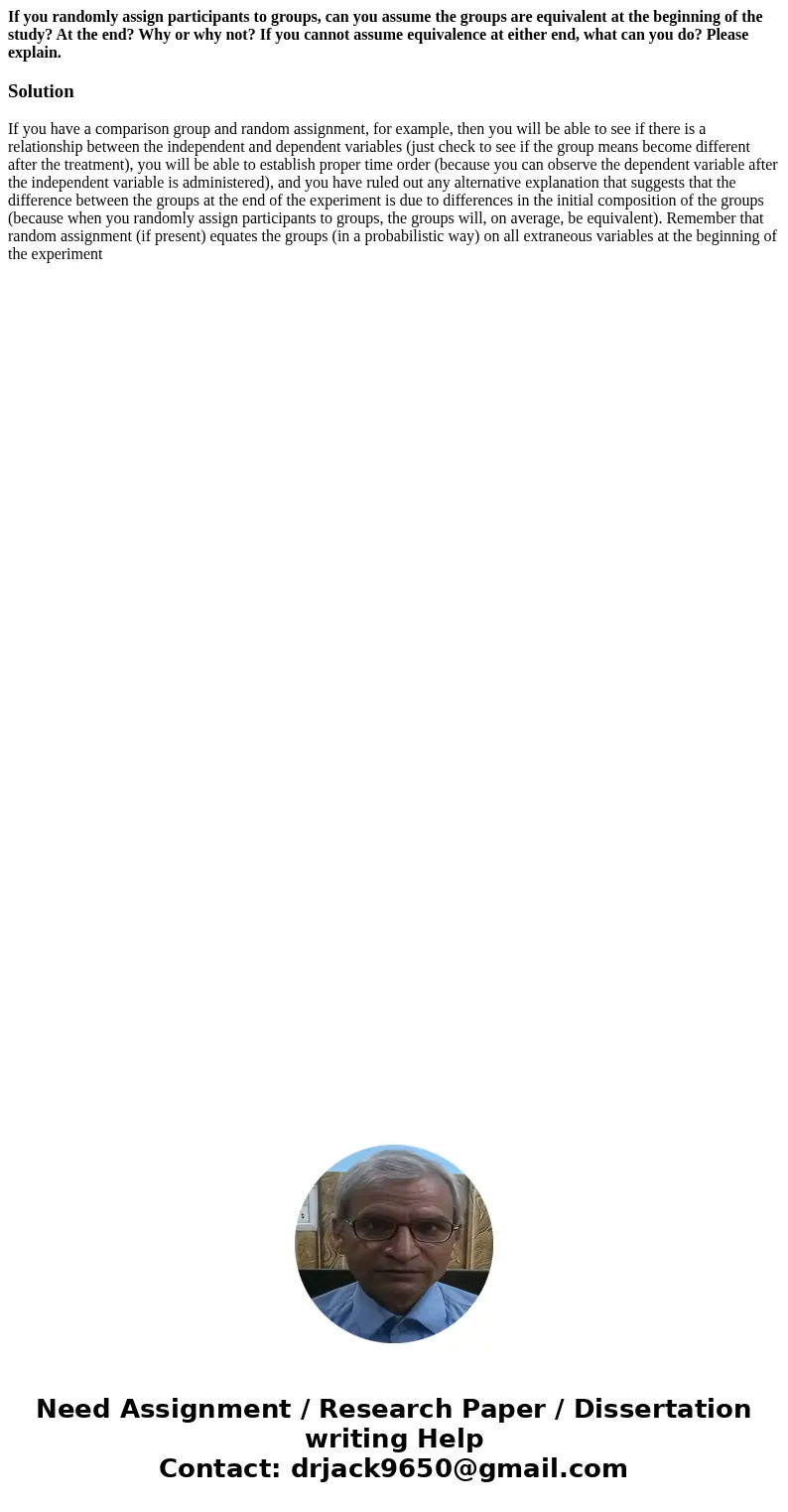If you randomly assign participants to groups can you assume
If you randomly assign participants to groups, can you assume the groups are equivalent at the beginning of the study? At the end? Why or why not? If you cannot assume equivalence at either end, what can you do? Please explain.
Solution
If you have a comparison group and random assignment, for example, then you will be able to see if there is a relationship between the independent and dependent variables (just check to see if the group means become different after the treatment), you will be able to establish proper time order (because you can observe the dependent variable after the independent variable is administered), and you have ruled out any alternative explanation that suggests that the difference between the groups at the end of the experiment is due to differences in the initial composition of the groups (because when you randomly assign participants to groups, the groups will, on average, be equivalent). Remember that random assignment (if present) equates the groups (in a probabilistic way) on all extraneous variables at the beginning of the experiment

 Homework Sourse
Homework Sourse